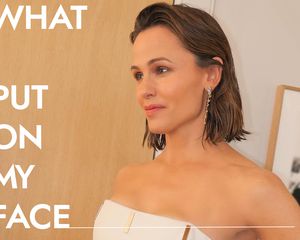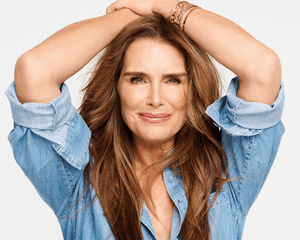On social media, we exist as fractions of ourselves—manifesting as constellational snippets of captions and photos and bios. I used to think it was much better to be a fraction. I could construe my personality as less awkward and more outgoing. I could manipulate the appearance of my body based on how many photos I was willing to take to find the perfect nonchalant pose. I could package my thoughts neatly, freeing them from the tyranny of "ums." I could selectively choose the parts of myself I wanted to display. The rest was obfuscated, whether intentionally or by default.
In the offline world, I can only be my whole self—a three-dimensional introvert with a penchant for wrinkling clothes and blushing before expressing an opinion. The amount of stuff I don’t have "figured out" is exponentially greater than the stuff I do. I am left with more questions than answers. My imposter syndrome is so substantial it sometimes feels like a fifth limb. I used to wish I could excise this baggage of reality. It took me years to arrive at a different truth: It is always better to be whole. Not in spite of the challenges and insecurities wrapped up in grappling with the entirety of our human selves, but precisely because of them.
The problem is what social media requires of us, which is to split ourselves like atoms, stripping away opportunities for nuance in the process.
This realization became clear in many small ways, eventually adding up to a big chunk of evidence that my original definition of "better" was flawed. I thought "better" meant uncomplicated and easy to digest. I thought it was embodied by quirky captions and a colorful aesthetic. Experience has taught me how little my appeal as a person is actually predicated on these things. The idea that it is is a lie. But from an app like Instagram’s perspective, it’s the kind of lie that is useful to reinforce. The better we think we are on these platforms, the more time we’ll spend on them—and the more we will choose them over reality. The constant feedback loop of likes and comments is designed to whisper in our ears: This is how you should always be. Ironically, the knowledge that we can’t is what keeps us coming back again and again.
The lies of social media are still whispered, but I'm conscious of their absurdity. Reality no longer feels like baggage.
I’ll admit I have a unique perspective on this subject as someone with a sizable number of Instagram followers. I imagine it’s given me a heightened awareness of what many people who regularly use social media might experience to a less exaggerated extent: a sense of dissonance between who I am online and who I am in real life. The more followers I accumulate, the more people there are who know me only as a series of fractions, and the greater the dissonance becomes. An obvious solution would be to reveal more about myself on social media—offering up a comprehensive cocktail of bad days, good days—the lows alongside the highs. But there is another voice here, one that whispers: Be careful. Because the idea that I have the power to stop the gap from widening is also an illusion. Even if I think I’m controlling what I reveal, I can’t control how other people understand or interpret it.
The problem isn't the amount of or even the nature of what is revealed. The problem is what social media requires of us, which is to split ourselves like atoms, stripping away opportunities for nuance in the process. I am conscious of this now, and yet the fact remains that I still choose to spend a good deal of my waking life immersed in the digital realm. It would be unrealistic to think that I could extricate myself completely, retreating fully into my wholeness (though I have so much admiration for people who do). I would say that’s because I need to be online for work—which is true, but it’s a convenient excuse for an addict all the same. I would also say my immersion has a different tenor than it used to, though. The lies of social media are still whispered, but I’m conscious of their absurdity. Reality no longer feels like baggage. It is as complicated as ever—and that is what I cling to: all the questions left to answer, all the things I have yet to figure out.
:max_bytes(150000):strip_icc()/landingpage_hero_desktop_FINAL20201116-b44f94cf2bac44b89a3f6f4176199a47.jpg)
:max_bytes(150000):strip_icc()/LandingPg-BSide-2x-8f9a096781ee457790b0c57600ba2cc0.png)
:max_bytes(150000):strip_icc()/Friendships-Falling-Apart-RECIRC-b405f95c2d734fab9188097eee4b76aa.jpg)
:max_bytes(150000):strip_icc()/RECIRC-Emotional-Makeup-1ba026986abf4548bcff55b923ccacdb.jpg)

:max_bytes(150000):strip_icc()/SF-BetterOnInternet-2-435ac89b5b064172b43e8ba0e58645f7.jpg)

